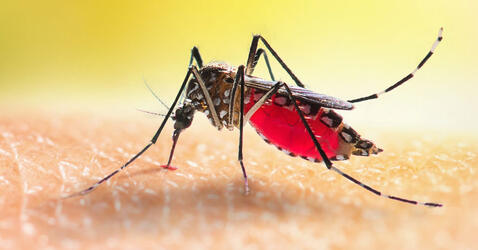You are here
Life
Bats are not just a mascot of Halloween, they are also a unique model of viral tolerance and resistance.
Article
11.26.2025
Given that animals are sentient, as established by recent research, what is their attitude towards death? In a recently-published book, the biologist Emmanuelle Pouydebat sheds light on the complex emotions and behaviours of various species in this situation.
Article
11.24.2025
Due to global warming and ever greater human activity, phytoplankton blooms are becoming increasingly frequent in lakes and oceans. Their impact on health, the economy and the environment is already being felt right across the entire living world.
Article
09.24.2025
Few weapons are available to fight antibiotic-resistant bacteria, which continue to cause millions of deaths. However, scientists are currently resuscitating a century-old solution, bacteriophages, which are viruses that only attack bacteria.
Article
09.01.2025
01.22.2025
Are the dinosaurs in “Jurassic Park” realistic? How does the film franchise explore the impact and applications of science? These are some of the topics addressed in a book published last autumn, as...
Article
12.11.2024
At a ceremony held in Paris recenlty, the biologist Edith Heard was handed the CNRS Gold Medal, one of the most prestigious French scientific distinctions, for her outstanding research on epigenetics...
Article
12.02.2024
While very useful in ecosystems, mosquitoes tend to ruin the lives of humans. A CNRS team has even recently calculated how much these dipterans cost society, primarily due to the diseases they...





